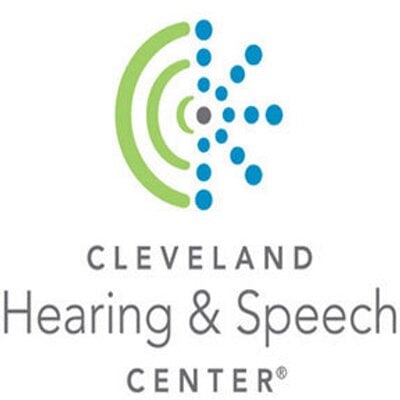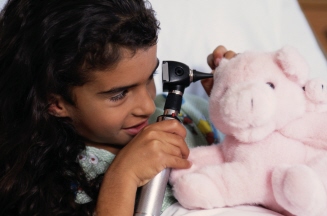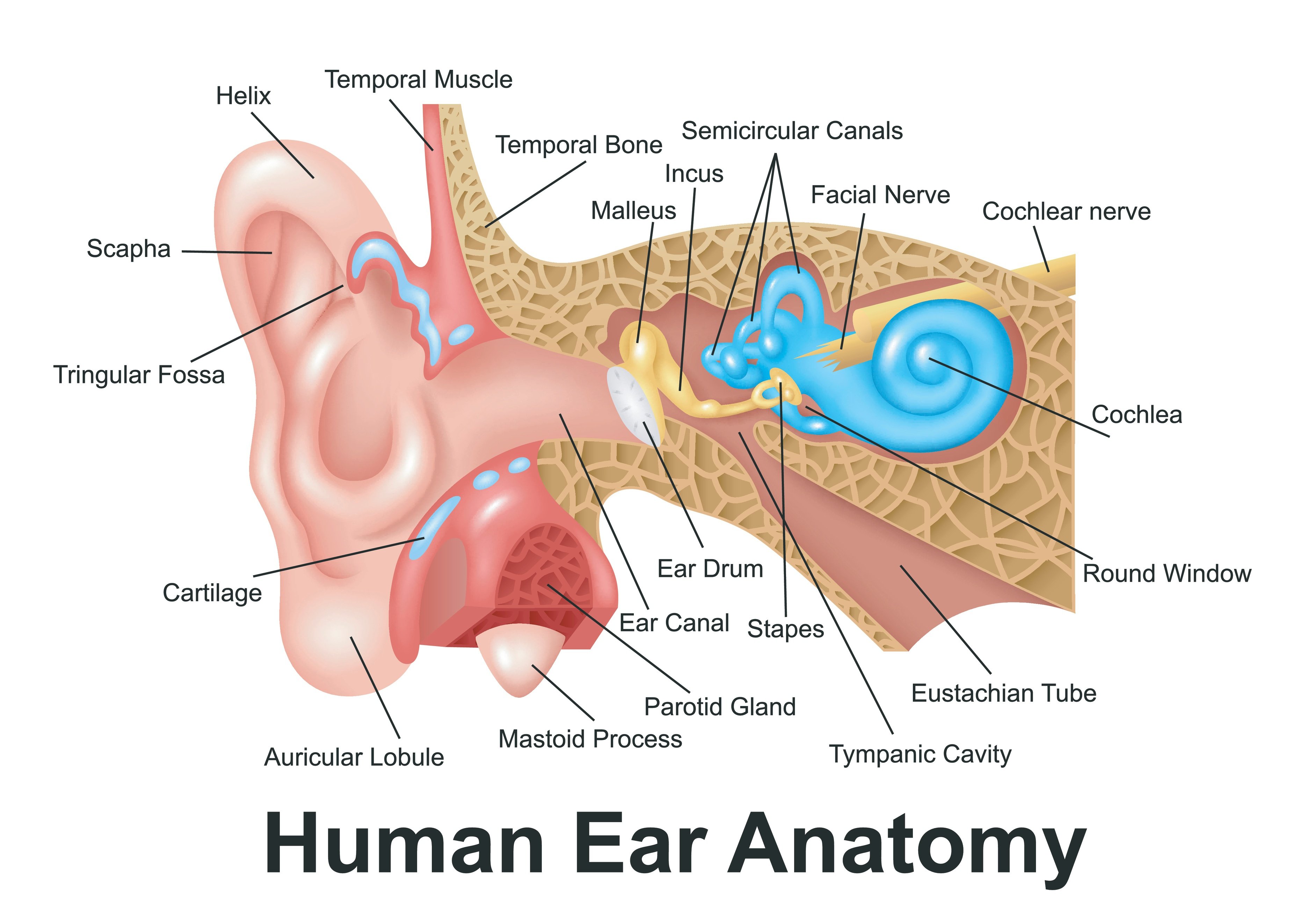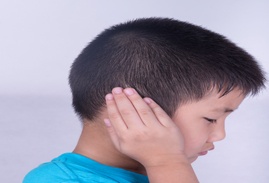Teaching your infant Baby Sign Language can help improve his or her communication skills. This is particularly appealing for new parents, given that there’s a gap between what babies and toddlers want to say and what they can verbally express.
Cleveland Hearing & Speech Center

Recent Posts
Baby Sign Language for Improved Communication
Tags: Speech, Language, Communication, American Sign Language, ASL, Learning, Voice, toddler, talking
Earbuds, Music and Your Teen
Today, with the popularity of earbuds and other personal listening devices, it’s hard to know if your child or teenager is listening to music at a safe level. Back in the day, when stereo speakers were common, it was easier for parents to know how loud their children were playing music.
Tags: Audiology, Hearing, Teens, Support, Hearing Loss, "tinnitus"
10 Signs Your Child May Have Hearing Loss
- “Huh? What Did You Say?”
As parents, we all know that hearing and LISTENING are not the same. But, if it seems your child is experiencing hearing issues, even when it appears he/she is listening well, you should ask your child’s physician for an in-office hearing test or referral.
- Failed School Screening
School-aged children routinely have vision and hearing screenings conducted at school. Generally, parents are NOT notified unless there is a concern. If you receive a notice from your child’s school that he/she did not pass the hearing screening, please follow-up as the notice recommends.
- Teacher’s Report— Part I
Let’s face it, teachers spend A LOT of time with our children and are likely the first to notice if your child is experiencing hearing issues. Though, at times, it can be difficult to separate attention/focus from actual hearing ability, if your child’s teacher shares a concern, you should have it checked out.
- Teacher’s Report— Part II
Have you noticed a sudden drop in your child’s grades? Listening can be a tiring task when struggling with hearing. It can be easy for your child to “tune out” the teacher’s lessons, which can then impact his/her grades.
- “Why Is That Television So LOUD?”
Many kids like to raise the volume of the television. For some shows, like cartoons, it can make them seem more exciting and fun, but it could also be a sign that your child is experiencing hearing issues. If your child insists that he/she cannot hear the television at a level that you believe is typical, consider getting your child’s hearing tested.
- “Inside Voice, Please!”
Some hearing problems interfere with our ability to monitor the volume of our own voice. If your child seems to be talking either too loudly (or too softly), consider having his/her hearing checked.
- Recent Upper Respiratory Infection, Colds, Allergies, Flu
Anything that causes swelling in the back of the nose/throat area can cause secondary problems with middle ear health and hearing. Even if there is no fever or pain, your child could still have trouble hearing. If your child recently had a bad cold and, a couple of weeks later, seems to not be hearing well, have it checked.
- “I’m Hearing a Funny Sound!”
If a child reports any unusual noises in their head or ears (a ringing, rushing, roaring, beeping, hissing, etc.), particularly after being exposed to loud sound, have his/her hearing checked.
- Eagle Eyes
Children are marvelously adaptable to using what senses they can to figure out what’s going on and communicate! If you notice that your child seems unusually attentive to visual information and watching the faces of people speaking, have his/her hearing checked.
- “I Thought You Said…”
Does your child seem to mishear or misunderstand what was said? Some hearing problems are subtle and can interfere with hearing certain speech sounds. If this is happening, consider a hearing test.
Tags: Communication, Hearing, Teens, Hearing Loss
7 Tips When Buying Hearing Aids for Children
If your child has been diagnosed with a permanent hearing loss it’s likely that hearing aids have been recommended. Hearing aids can be life-altering for your child, allowing him/her to hear sounds often miss due to hearing loss. Hearing aids that are properly fitted early on can allow your child to develop speech and language skills to reach his/her full potential.
Tags: Hearing Aid, Hearing, Hard of Hearing, Hearing Loss, toddler
Benefits of Lullabies for Babies
Tags: Language, Communication, Hearing
10 Interesting Facts about Ears & Hearing
- Children with normal hearing in both ears generally perform better with auditory tasks and processing sound in their right ear up until puberty.
- Ears are completely individual just like fingerprints! Yahoo has even explored technology that could unlock a cell phone when held to the ear.
- Of the 206 bones in the human body, the six smallest are in your ears: three in the right and three in the left. Together, each three are about the size of a pencil eraser.
- The hearing organ, called the cochlea, has 16,000 microscopic hair cells called sterocilia.
- The unit used to measure loudness – the decibel - was named after Alexander Graham Bell, the inventor of the telephone.
- We turn the radio up when we drive on the highway and down when we are on side streets is due to the fact that those with normal hearing need sound levels to be nearly 10 decibels louder than background noise. This is referred to as the signal-to-noise ratio.
- Other than vision and proprioception (the ability to sense the orientation of your body in your environment), our primary organs of balance, known as the vestibular system, are located in the inner ear. There are three semi-circular, bony rings located on different levels which contain fluid that moves as we move.
- Ears are self-cleaning. Only the outer third of the ear canal produces ear wax (cerumen), which moves outward on tiny hairs as we move our lower jaw to talk or eat.
- Thunder is the sound accompanied by lightning, but often there is a delay between when we see lightning and hear the thunder. That’s because sound travels nearly 760 mph whereas light travels about 186,000 mph. This is why we see lightning before we hear thunder.
- The best way to measure the distance of lightning from your location is by counting the seconds (one Mississippi, two Mississippi…) between the lightning and thunder. For every five seconds you count, the storm is about one mile away.
Tags: Hearing
My Child Needs Tubes in His Ears - What Does That Mean?
Did you know the most frequent pediatrician visits, other than for well-child care, are for ear problems? And, did you know that the most common surgery performed on children in the U.S. is for “tubes in the ears,” which refers to Tympanostomy tube (myringotomy with pressure equalization – “PE tube”) placement is the most common surgery performed on children in the United States
Tags: Hearing, Hearing Loss, toddler
How the Wilson Reading System Can Help Your Child
The Wilson Reading System (WRS) is a multi-sensory, research-based reading and writing program. It is a complete curriculum for teaching decoding (sounding out words) and encoding (spelling), beginning with phoneme segmentation. WRS directly teaches the structure of words in the English language so that students master the coding system for reading and spelling. Unlike other programs that overwhelm the student with rules, the language system of English is presented in a systematic and cumulative manner so that it is manageable. It provides an organized, sequential system with extensive controlled text to help teachers implement a multi-sensory structured language program.
Tags: reading, literacy, Wilson Reading Program, Learning
Technology & Tips for Improved Telephone Communication for People with Hearing Loss
For people with hearing loss, hearing on the telephone is often a struggle; whether conversing with friends or family, arranging a job interview, contacting a company’s customer service department, or scheduling a medical appointment.
Tags: Hearing Aid, Audiology, Hearing Aids, Communication, Hearing, Hearing Loss Prevention, Hard of Hearing, Hearing Loss
Prevent "Summer Slide" in Reading Skills
Summer vacation isn’t all fun and games (even if it should be). Research shows that summer can take a toll on a student’s knowledge and skills-from mathematics to reading development. Summer learning loss (“summer slide”) contributes substantially to the achievement gap between low-income and high-income students. Luckily many types of summer programs can help keep a child's mind engaged over the summer.
Tags: reading, literacy, Wilson Reading Program, Reading Summer Camp



















